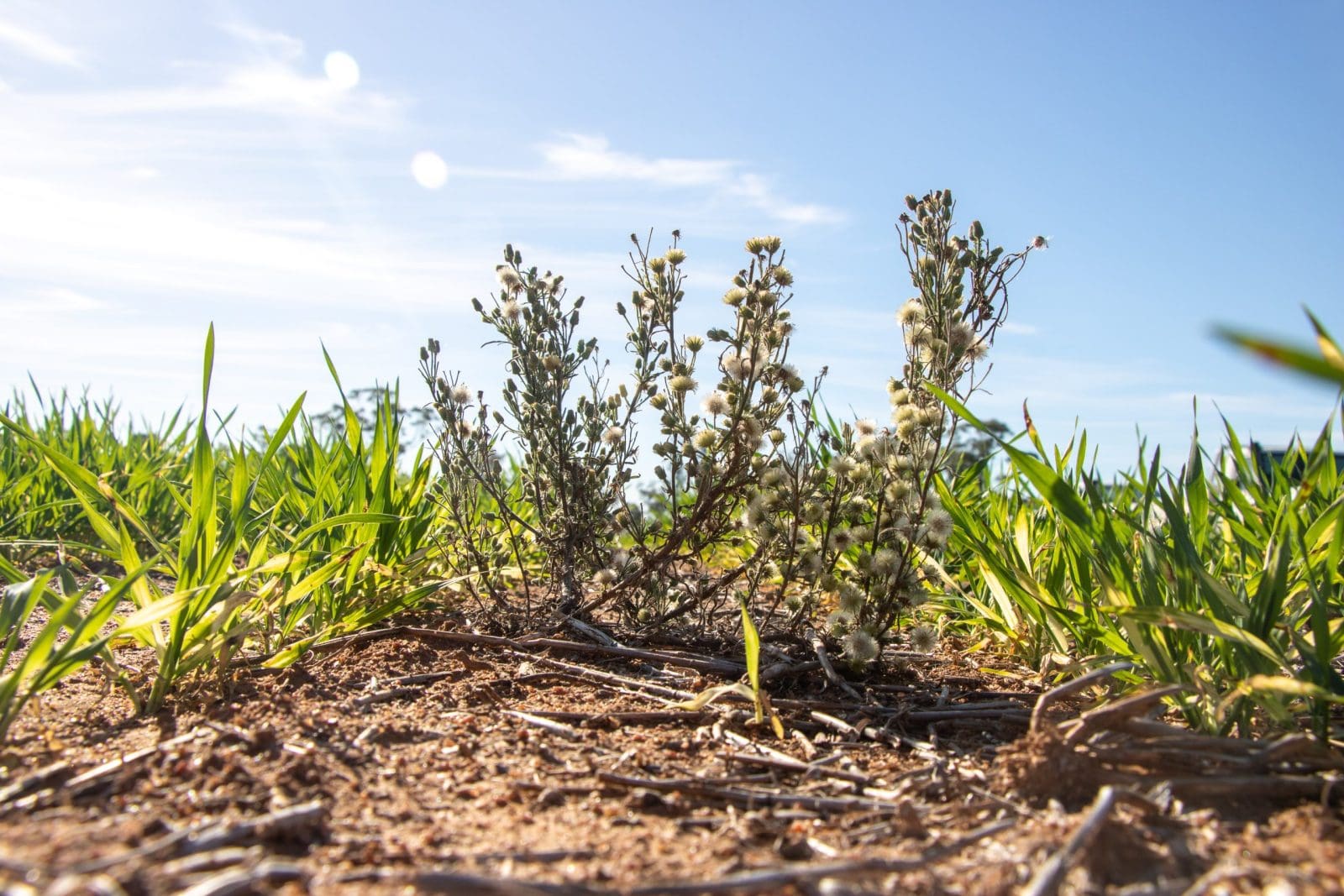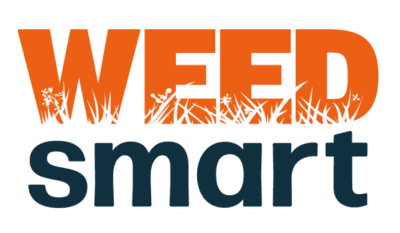
Fleabane has a fluffy and lightweight seed spread easily by wind. Photo: WeedSmart
CLIENTS’ paddocks in NSW’s central and southern cropping zones are generally cleaner than ever as growers are making weed control a priority, Griffith-based agronomist and Ag Grow Agronomy and Research director Barry Haskins said.
The double-knock tactic of glyphosate followed soon after with paraquat and residual herbicides has helped keep fallows clean, but confirmed resistance to paraquat in several fleabane populations from the Griffith region a few years ago sounded alarm bells for growers and agronomists.
The fluffy, lightweight seed is easily spread by the wind, carrying the resistance gene to cropping paddocks where the double-knock has previously been effective.
If fleabane escapes herbicide control, it can quickly establish in large numbers and each plant has a deep root system capable of extracting stored soil moisture and nutrients from depth.
 The WeedSmart Big 6 strategy recommends implementing as many herbicide and non-herbicide tactics as possible within a diverse cropping rotation.
The WeedSmart Big 6 strategy recommends implementing as many herbicide and non-herbicide tactics as possible within a diverse cropping rotation.
“The lack of new broad-spectrum knockdown herbicide options means that we need to be working hard on other management tools in case we lose paraquat completely,” Mr Haskins said.
“In the interim, we have some tank-mix options, but with all weeds now needing at least a double-knock, it is not sustainable to be adding a third knockdown. We need to do something quite different, particularly to keep ahead of fallow weeds.”
Role for optical sprayers
Adding a Group 14 spike to the paraquat application in a double-knock targeting a range of fallow weeds is a good way to increase the overall efficacy of the tactic.
Where growers have paraquat-resistant fleabane, Mr Haskins said a mix of glufosinate, amitrole, and a Group 14 herbicide applied with an optical sprayer soon after harvest is proving an effective knockdown mix.
It is important to remember that glufosinate requires humid conditions during application for full efficacy.
“Many growers use optical sprayers, cultivation and residual herbicides to target fleabane in the fallow.”
“Residual herbicides can only provide around 80 to 90 per cent control, so they are not a stand-alone option for controlling fleabane resistant to the common knockdown herbicides. In a prolific seeding species like fleabane, even 99 per cent control is not enough.”
Fleabane is germinating and growing all year round on the Western Plains of NSW, and in other regions.
After applying knockdown herbicides, growers can use residual herbicides such as Balance or Terbyne to protect the fallow.
In-crop herbicide options include Mateno Complete and Overwatch in wheat and barley, Terbyne and Atrazine in TT canola and Reflex in pulses, to name a few.
These in-crop pre-emergent herbicides are essential to reduce early in-crop germination to protect the crop until canopy closure, when the crop can provide strong competition.
This strategy helps start the fallow with a low seed bank, especially when combined with tactical in-crop herbicide options.
In addition to herbicide tactics, Barry suggests using non-herbicide tools to help prevent seed set in fleabane and other weeds. Strategic grazing can help buy some time and reduce seed set, but grazing alone will not kill fleabane plants.
Where necessary, full cultivation with multiple passes can re-set the weed seed bank and remove large plants with big root systems.
Fleabane seed is short-lived, and as a surface-germinating weed, less seed will germinate once it is buried.
“If there has been a blow-out of fleabane, avoid growing pulses the following year,” says Barry.
“Canola is usually a more competitive option and has a good chemical package for fleabane control.”
Source: Cindy Benjamin, WeedSmart

HAVE YOUR SAY